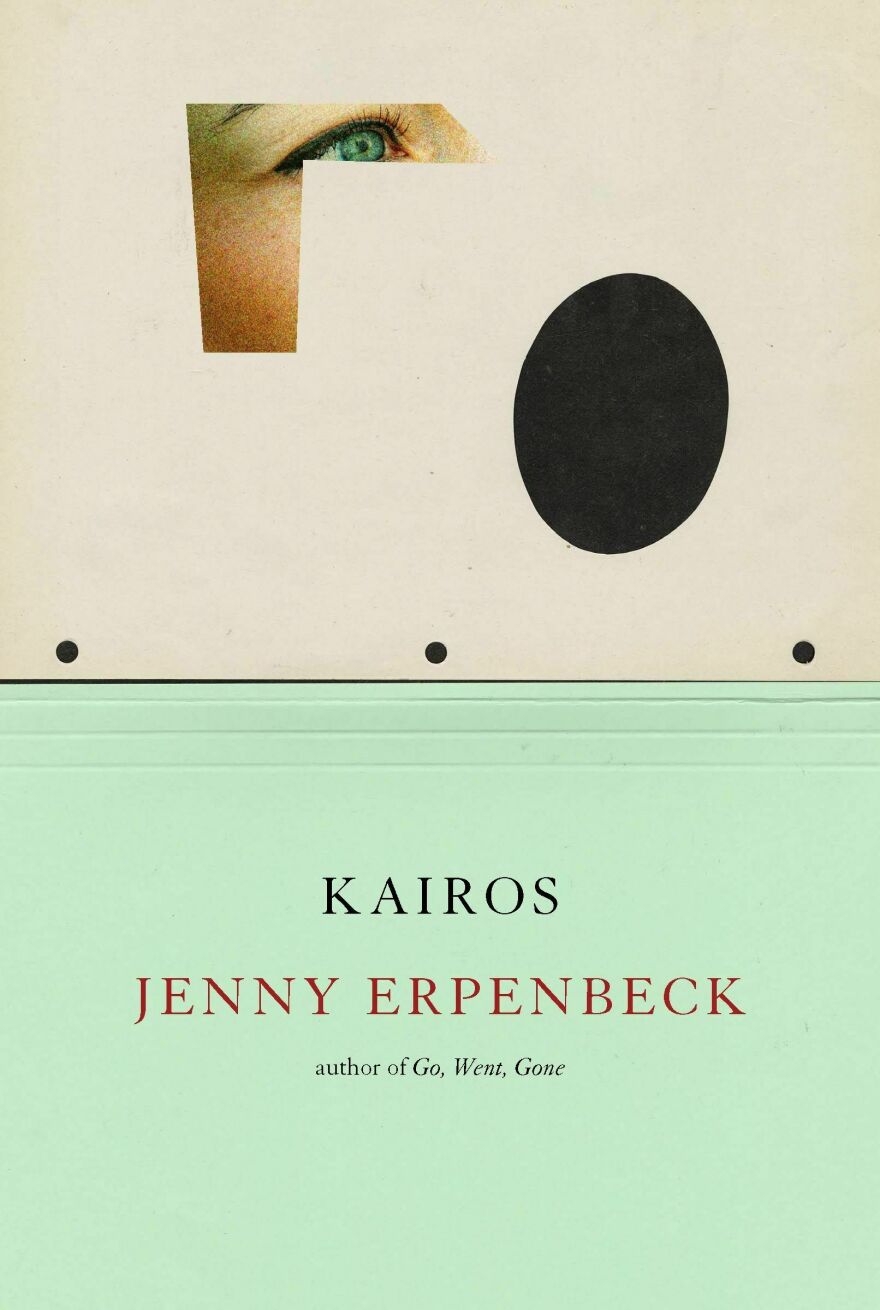The history of literature is, in no small part, the history of love stories. And with all due respect to Elizabeth Bennet and Mr. Darcy, the greatest romantic stories nearly always end unhappily. Their pleasure is inseparable from their pain.
Pain and pleasure do the tango in the engrossing new novel Kairos, the story of a love affair set in East Germany right before and after the fall of the Berlin Wall. It's the latest book from the East Berlin born Jenny Erpenbeck, the 57-year-old writer and opera director who I fully expect to win the Nobel Prize sometime in the next five years. A grownup writer for grownup readers, Erpenbeck has an unsurpassed gift for showing how our ideas, passions and choices are shaped – and reshaped – by passing time and the ceaseless transformations of history.
Kairos begins in 1986 when Katharina, a 19-year-old theater design student has an East Berlin version of a meet-cute with Hans, an admired novelist and radio commentator who is both married and more than thirty years her senior. While Katharina is drawn to this handsome writer by his intelligence and nicotine-drenched worldliness, Hans, no newcomer to infidelity, is attracted by her youth and intellectual openness.
They dive into an affair that the book describes with unsentimental precision, capturing the emotional convulsions agonizingly familiar to anyone who's been caught in a relationship gone sour. At first, Katharina and Hans romp in the realm of magic. They frequent cafes, share inside jokes, and listen to music – lots of Bach and Schubert – as foreplay. They could hardly seem closer, though as they lie together after making love, Erpenbeck coolly delineates their differences. "It will never be like this again, thinks Hans. It will always be this way, thinks Katharina."
She is, of course, wrong. Their initial delight begins to fragment into spats and breakups and reconciliations. Beyond having a family, the jealousy-prone Hans has a cruel streak. He begins to punish Katharina for being young and making him love her. Meanwhile, her own awareness keeps growing, and though she still loves Hans, or thinks she does, she starts viewing him and the future in a different way. The gulf between them only widens as the East German state starts to collapse, further shifting their power dynamic.
Now, Erpenbeck isn't known for personal fiction. Her previous novel, Go, Went, Gone – one of the best books I've read in the last decade – is about a retired Classics professor in Berlin who tries to help African immigrants. But Kairos feels different. Katharina's background is strikingly similar to Erpenbeck's – they were born in the same year – as is her interest in the theater.
Erpenbeck understands that great love stories must be about more than just love. What makes Anna Karenina monumental is the way Tolstoy uses Anna's ill-starred affair to anatomize Russian culture. What makes Swann's Way dazzling is how Proust uses Swann's passion for Odette to lay bare the precise mechanisms of desire.
It's this wider sense of life that Erpenbeck offers in Kairos, which, in Michael Hofmann's crystalline translation, pulses with her memories of communist Berlin. Even as she chronicles Katharina's and Hans' romance in all its painful details, their love affair becomes something of a metaphor for East Germany, which began in hopes for a radiant future and ended up in pettiness, accusation, punishment and failure.
Along the way, Erpenbeck provides the richest portrait I've read of what happened to East Germans when their glumly repressive communist state was replaced overnight by a cocky, shopping-mad West Germany that instantly set about erasing the reality they knew – devaluing their money, dismantling their media, denying their values. Ossies (as they are known) were plunged into an alien society in which, as Erpenbeck once put it, everyone had lost the software of how to deal with things.
Early on, we're told that Kairos was the Greek god of fortunate moments. He can only be caught by grabbing the lock of hair on his forehead – if he passes by you, it's too late. The book is filled with people rushing to seize what they think is the forelock of happiness, from Katharina falling for Hans to East Germans embracing the West. But, as the novel shows, the trouble with reaching out to grab fortunate moments is that you can never be sure whether those moments are truly fortunate, and even if they are, whether the good fortune will last.
Copyright 2023 Fresh Air. To see more, visit Fresh Air.


